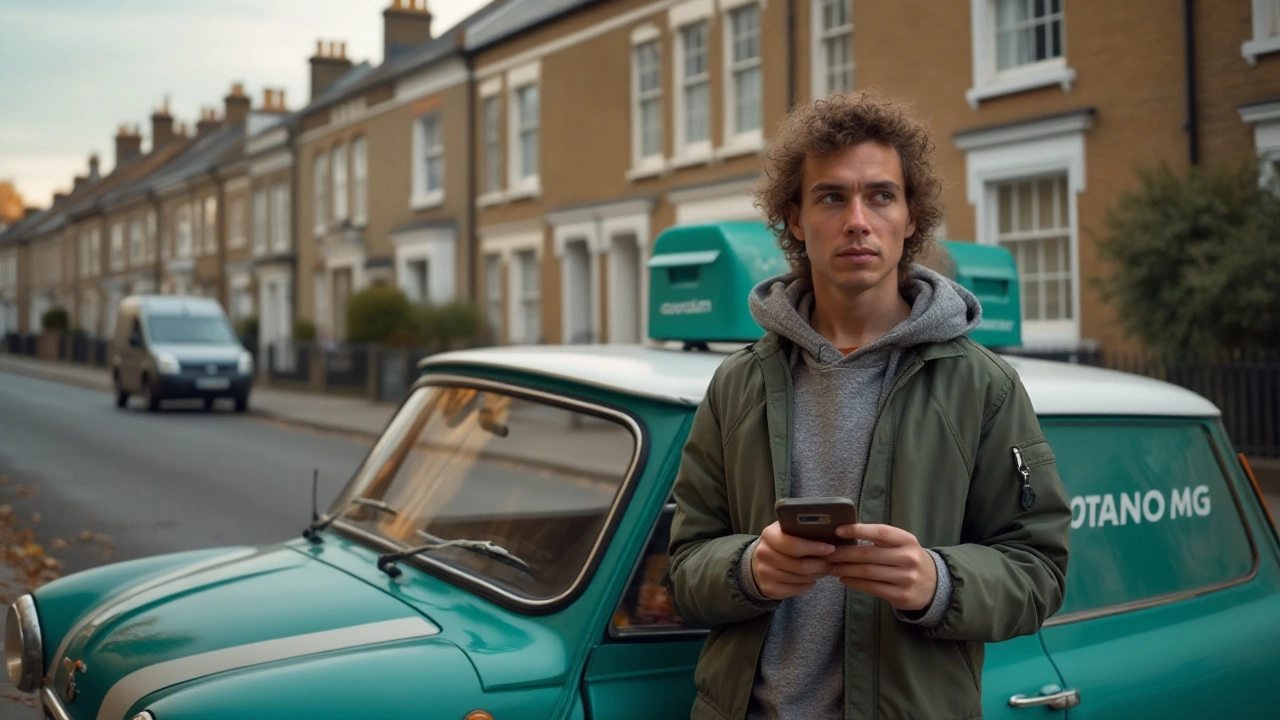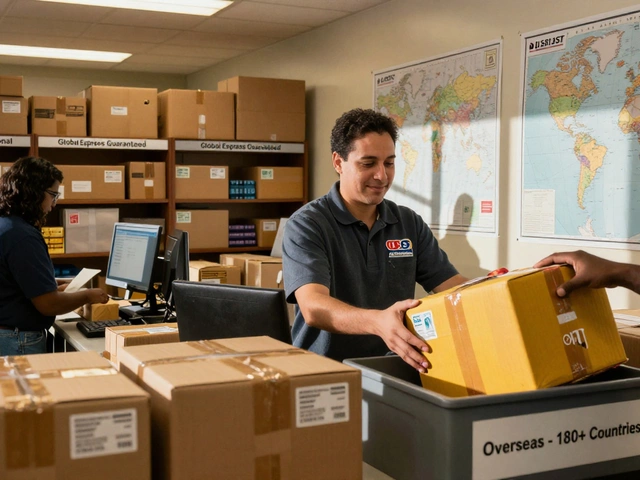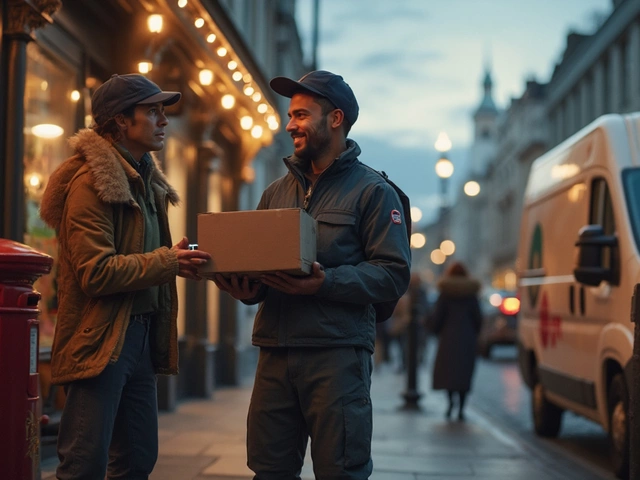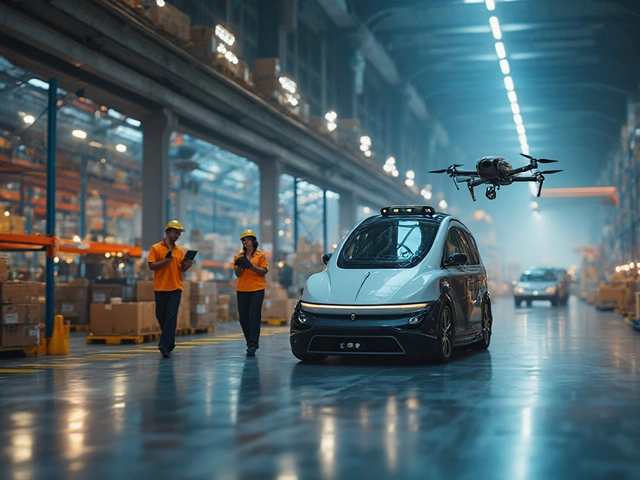Driving for DoorDash can be a flexible and rewarding way to earn additional income, but it also comes with responsibilities, including the need to stay informed about your car insurance. With gig economy jobs becoming more popular, many drivers are unsure about how these new roles impact their existing insurance policies.
If you're delivering food, it's essential to know how your current coverage measures up and whether you need to make adjustments. Not all insurance policies cover commercial activities such as deliveries, which makes understanding your coverage crucial to avoid potential pitfalls.
In this article, we'll delve into the specifics of what delivery drivers need to know about car insurance when working with DoorDash. We'll explore DoorDash's own insurance offerings, discuss the limitations of standard personal policies, and provide insights into selecting the right insurance coverage to ensure you are fully protected while out on the road.
- Understanding DoorDash's Insurance Policy
- Why Personal Insurance Might Fall Short
- Types of Insurance You May Need
- Tips for Navigating Your Insurance Options
Understanding DoorDash's Insurance Policy
Delivering for DoorDash can be a rewarding way to earn money, but it also requires a clear understanding of the insurance implications involved in such work. DoorDash provides a contingent liability policy for its drivers, which acts as a secondary coverage to your existing insurance. This coverage is only applicable when you have accepted an order and are on your way to pick up from the restaurant or make a delivery to the customer. It does not cover any other times, like when you're simply driving around waiting for an order to pop up.
The contingent liability insurance offers coverage up to $1 million in bodily injury or property damage. This might sound like a hefty number, but it's crucial to remember its contingent nature, which means it kicks in only if your personal car insurance denies a claim. DoorDash’s policy specifically does not cover any damage you might incur to your own vehicle, which places the responsibility back on you to ensure you have the right coverage to protect your car.
The Insurance Information Institute explains, "It's essential for rideshare and delivery app drivers to understand their coverage gaps, as standard personal auto policies often do not cover commercial activities."
What stands out is that this policy doesn’t replace your own insurance. For drivers unaware of this nuanced intricacy, an assumption that DoorDash’s insurance would cover every mishap could lead to significant financial burden in the event of an accident. Thus, it's indispensable for delivery drivers to inform themselves about their insurance policies and talk to their provider about their involvement with DoorDash to avoid unpleasant surprises. Although, the pursuit of the gig economy offers enticing freedom and earning potential, it comes with a good heap of responsibility. So, being proactive about one's insurance situation remains a critical part of driving for DoorDash.
Keep in mind, every insurance company may have diverse stipulations when it comes to delivery driving, and some may require you to add a commercial or business use rider to your existing policy. This could mean additional costs, but safeguarding your finances in the case of an unforeseen event can make it worth your while. Understanding what DoorDash covers—and doesn't cover—will help you stay protected and focus on making those deliveries efficiently.
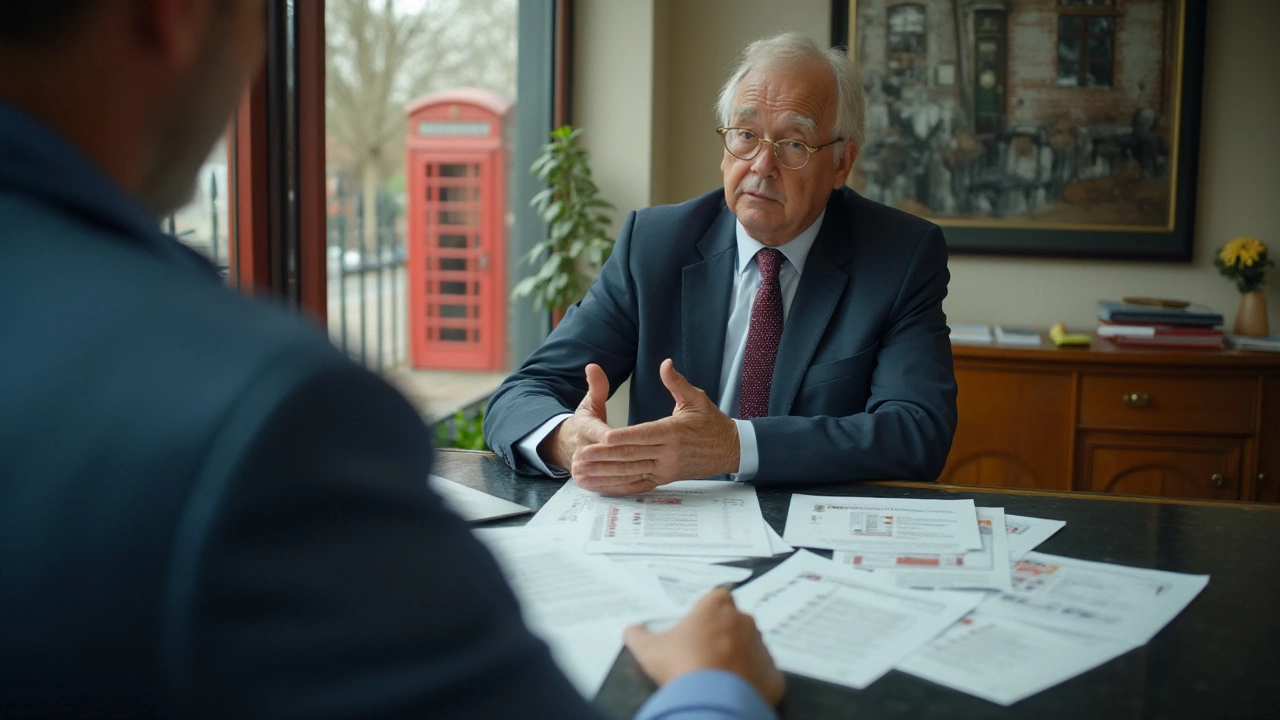
Why Personal Insurance Might Fall Short
Many people assume that their car insurance policy provides a safety net for almost any situation they encounter on the road. However, when you switch gears from personal driving to working as a delivery driver with services like DoorDash, things start to change significantly in terms of coverage. It's critical to understand that regular auto insurance policies are typically intended for private, non-commercial use. This means they often do not cover incidents that occur while the vehicle is being used for commercial purposes. Most standard insurers explicitly exclude business activities because they view them as involving greater risk. Simply put, delivery driving increases the miles on your car, heightens the chances of traffic incidents with hurried schedules, and this risk elevation is not something most insurers are willing to overlook without higher premiums.
When under contract with a delivery service, your policy might not be honored if you file a claim for an accident you had while making a delivery. The insurance company could deny your claim if you haven't informed them about your new gig and adjusted your policy accordingly. According to The Insurance Information Institute, personal policies were not written with commercial use in mind and usually require a commercial upgrade or a rideshare add-on. Without such adjustments, a driver can end up responsible for expenses in the wake of an accident, which can be financially overwhelming.
"The gig economy has ushered in a whole new set of challenges for insurance providers as vehicles are utilized in ways not contemplated by traditional policies," says Janet Ruiz from the Insurance Information Institute.
Different jurisdictions have varying requirements when it comes to insurance for delivery drivers, making it all the more essential to know what's necessary before you hit the road. Some areas might require delivery drivers to carry a specific level of both liability and comprehensive cover that meets legal thresholds distinct from private drivers. This ensures that any damages or injury sustained by third parties during an accident is properly compensated without massive financial fallout for the driver. It's worth mentioning that even if your personal policy remains valid during deliveries, it may fail to provide adequate coverage levels that meet legal or practical needs.
There is also the aspect of gaps in coverage that can leave drivers vulnerable during certain parts of their shifts. For example, while drivers might be covered by a platform’s insurance while actively delivering, coverage could lapse between deliveries. Knowing this, it becomes crucial for delivery drivers to assess their personal policies and seriously consider obtaining supplemental insurance tailored to gig work. Drivers should weigh the costs of additional coverage against potential out-of-pocket expenses in the event of uninsured damages both to themselves and others. This consideration helps ensure a sufficient financial umbrella, navigating both company and jurisdictional insurance requirements smoothly.

Types of Insurance You May Need
If you're embarking on a journey as a delivery driver for DoorDash, it's crucial to consider what types of car insurance coverage you might need. While you might rely on the insurance provided by the company, it's often not sufficient on its own. Yes, DoorDash provides some level of coverage, but it primarily kicks in after your own insurance has been exhausted, which means having proper coverage under your personal policy is key.
The most essential type of insurance to consider is commercial auto insurance. This covers vehicles used for business activities, a category into which delivering goods for DoorDash squarely falls. Most personal auto insurance policies specifically exclude coverage for commercial use, which essentially means that if you're in an accident while making deliveries, your insurer might deny the claim. Commercial insurance, on the other hand, acknowledges and covers such use cases.
Supplemental Coverage Options
Beyond commercial auto insurance, other types of insurance can fortify your safety net. For example, a rideshare insurance policy can be an affordable add-on to your existing personal policy. This specialized insurance fills the gap between personal use and commercial use, which can be extremely beneficial because it tends to be more affordable than full commercial coverage. It is particularly attractive because many rideshare policies also cover deliveries.
According to Insurance.com, "Rideshare insurance is a relatively new offering from insurers, designed to address the unique needs of drivers operating part-time for companies like Uber, Lyft, or DoorDash."
Additionally, considering uninsured or underinsured motorist coverage is a wise move. This coverage protects you if you're involved in an accident with a driver who lacks adequate insurance. Since delivery drivers frequently share the road with a variety of motorists, having this coverage can save you from hefty out-of-pocket expenses in unfortunate circumstances.
Data and Facts
Finally, a look at the data can provide some context for these considerations. A survey conducted in 2023 found that nearly 60% of delivery drivers had not updated their insurance coverage to reflect their professional activities. The same study revealed that drivers who proactively enhanced their policies felt significantly more secure compared to those who continued without changes. Take a proactive approach by understanding not just the risks, but also the landscape of options available.
| Type of Insurance | Coverage Provided |
|---|---|
| Commercial Auto Insurance | Covers vehicles for business use. |
| Rideshare Insurance | Fills the gap between personal and commercial use. |
| Uninsured Motorist Coverage | Offers protection against inadequately insured drivers. |
In making the right insurance choice, you are investing in peace of mind. This ensures not only personal protection but also promotes a sense of professionalism essential for modern delivery drivers. So, taking time to evaluate your options and selecting the coverage that appropriately meets your needs is paramount. Recognize your vehicle's integral role in your work and prioritize its protection as a key business asset.

Tips for Navigating Your Insurance Options
Approaching the world of car insurance as a DoorDash delivery driver might seem overwhelming at first, but understanding your options can make the process a lot smoother. The key is to begin by identifying what your current policy covers and where it might fall short. A standard personal car insurance policy might not provide coverage for incidents that occur while you're making a delivery. It's essential to communicate with your insurance provider about your new role to avoid any unpleasant surprises down the road.
Once you've determined the gaps in your current policy, it's time to explore additional coverage options. Most insurers offer policies specifically designed for delivery drivers, often referred to as commercial or business-use insurance. These policies can provide coverage for liabilities not included in personal policies. Comparison shopping is crucial here, as premiums and coverage levels can vary significantly among insurers.
Take the time to read reviews and gather quotes from multiple providers to ensure you're getting the best possible coverage at a reasonable price. Moreover, consider elements such as deductible amounts, which can affect your out-of-pocket expenses in the event of a claim. It's advisable to keep documentation of any correspondence with your insurer and the terms of any new policy adjustments you make, as these records will be invaluable should you need to file a claim.
Many drivers find that bundling additional coverages, like collision or comprehensive coverage, with their existing policies can lead to better deals. It's worth asking your agent whether bundling options are available. If you're worried about the expense, remember that some parts of these costs can be tax-deductible since you're using your vehicle as a business asset.
"Navigating insurance as a gig driver requires as much diligence as the job itself. Overlooking specifics can lead to costly mistakes," advises insurance expert David Kuhl, highlighting the significance of being well-informed.
Ultimately, staying informed and proactive will help you make confident decisions about your insurance. Don't hesitate to reach out to customer support lines with questions, and always approach discussions with a clear understanding of your needs and expectations. By taking these steps, you can continue delivering with DoorDash confidently, knowing you're safeguarded on the road.
